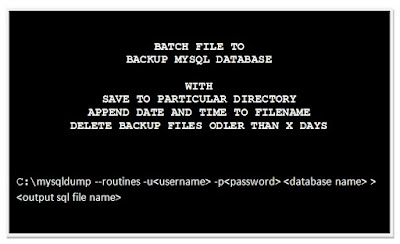In this post, we will see how to create a simple VB.NET application to backup MySQL database using the same mysqldump command by firing command prompt from the VB application. For this example, I am using Visual Studio 2015 Community edition.
In some examples on the internet, you would also find the use of mysql connectors for Visual Studio. I have also used it and it works. But since in this post, I am directly going to fire the command prompt from the VB application just like we execute mysqldump command directly in command prompt, there is no need to use the mysql connector for backup purposes. It will however be required if your application is going to fetch data display data etc from a MySQL database in the VB application.
The form designed is:
Ignoring the other labels, the important form elements used in code are:
Read more �
In some examples on the internet, you would also find the use of mysql connectors for Visual Studio. I have also used it and it works. But since in this post, I am directly going to fire the command prompt from the VB application just like we execute mysqldump command directly in command prompt, there is no need to use the mysql connector for backup purposes. It will however be required if your application is going to fetch data display data etc from a MySQL database in the VB application.
The form designed is:
Ignoring the other labels, the important form elements used in code are:


